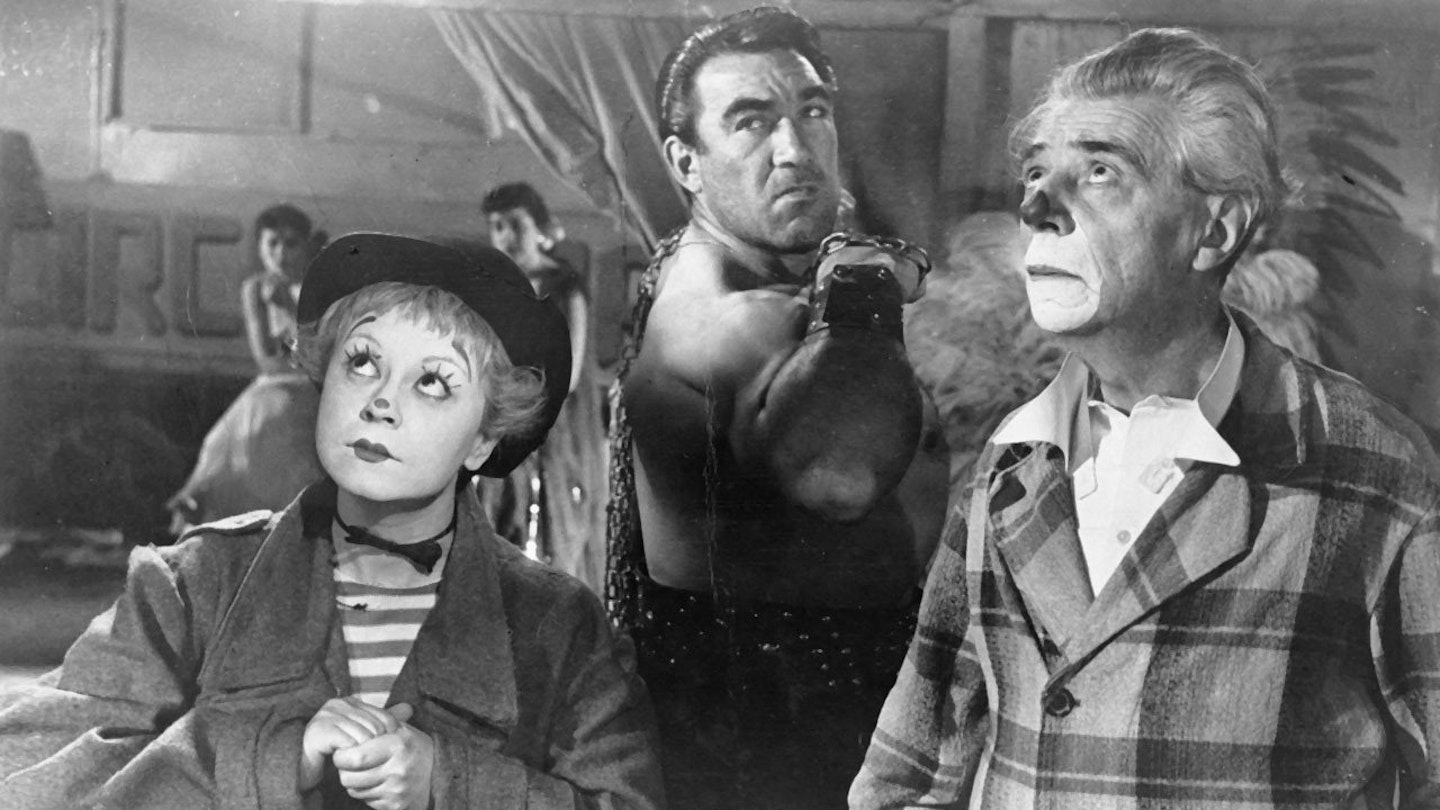Federico Fellini's first draft of this affecting road movie centred on an itinerant clown and her overpowering mentor. Indeed, he even shot test footage in 1952 in the hope of finding a backer. But while he retained the Beauty and the Beast element, he and co-scenarist Tullio Pinelli shifted the emphasis so that Gelsomina became the devoted sidekick of the one-trick strongman whose brutality had contributed to her sister's death.
However, fellow writer Ennio Flaiano felt that the story was excruciatingly sentimental and he persuaded Fellini to tone down the tweer elements so that Gelsomina emerged as a Harry Langdon-Harpo Marx hybrid, who not only learns from everything that she sees, but who also builds up her part in the act as the excitement of showbusiness (albeit tawdry) and the enthusiasm of the crowds give her the timid confidence to express herself.
Yet she ultimately repents of her individualism and elects to abandon possible happiness with Matto the Fool to remain loyal to Zampano, only for him to abandon her as she sleeps on the street (waking to the sight of a riderless horse, which was a favourite Fellini symbol for isolation).
Her choice tied in with one of the film's key themes, that even the lowliest in society have a purpose. But Fellini was also keen to deviate from his neo-realist past and invest the action with a blend of lyrical fantasy and awed spirituality. Consequently, he linked Gelsomina and Matto with the commedia dell'arte characters of Columbina and Arlecchino, while also giving The Fool a Messianic feel (that was reinforced by his first appearance in an angel-winged costume on a wire high above the town square following a religious procession) and Gelsomina a touch of St Francis, through her affinity with nature and the helpless. Even Zampano was eventually touched by redemptive love when he broke down on hearing of Gelsomina's death.
The first in a trilogy of solitude that would conclude with Il Bidone and Le Notti di Cabiria, La Strada won the Academy Award for Best Foreign Film and finally established Fellini's international reputation.
